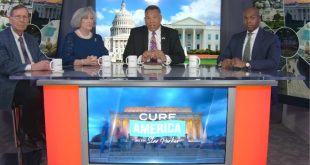On Tuesday, May 2, CURE Policy Analyst Raheem Williams, on behalf of Do No Harm, testified before the Louisiana State House Committee on Health and Welfare. Williams testified regarding gender reassignment procedures on children.
Written Testimony:
I’d like to thank the Members of the committee for allowing me the time to speak and address this issue. My name is Raheem Williams. I’m here today as a researcher in Collaboration with Do No Harm and Center for Urban Renewal & Education. Although, there’s much to be said. I’d like to focus on The Louisiana Health Department’s Study on Gender Reassignment Procedures on Minors.
The Report is limited to surveillance of Medicaid enrollees within the state, which excludes key demographics associated with gender transitioning (typically white and higher social economic standing). Thus, the report cannot definitely account for the frequencies in which medical gender treatments are administered to minors. Similarly, report authors admit that Louisiana Medicaid doesn’t cover gender surgeries for minors meaning such activity would not have been included within tmobhe data of this report regardless of frequencies. The aforementioned critical limitations mean this report is likely to be undercounting the number of minors receiving medical treatments for gender transitions. Even with these data limitations, the report confirms rapid growth in youth medical transitions as the number of Medicaid enrolled utilizing the care has more than doubled.
Similarly, the report makes ample use of loaded activist terms like “assigned female” or “assigned male” at birth, regardless of gender identity or one’s position on this bill. Human sex is a biological feature, doctors are not arbitrarily assigning genitals to newborns at whim. Humans are not barbie dolls. Sex is a function of prenatal development. Sex is observed at birth not assigned. Additionally, the report proclaims that the standard of care used in this area of medicine are evidence based, despite the fact that most of the cited research in this area is from practitioners that personally profit from administering these experimental treatments, and physicians around the world challenging everything from the long-term health of youth gender transitioning and the oft cited mental benefits. The absence of clinical trials and control groups is noted by both advocates and skeptics alike.
Similarly, the report misrepresents WPATH guidelines. The latest Standard of Care makes no minimum age recommendation for most gender related surgeries (top or bottom) with the only exception being four Phalloplasty (the surgical creation of the penis). Similarly, the latest WPATH standards inform clinical practitioners to only seek parental consent they believe parents will give it. In other words, if the parents disagree, try to move ahead anyway.
Admittedly, the authors of the state’s study were assigned a difficult task. They had limited data availability because there are no legal requirements to monitor these controversial treatments at the state or federal level. Furthermore, the report downplays international experience. Health officials in England, Sweden, Norway and Finland have all broken with the WPATH and are openly challenging the so-called evidence.
 CURE News and Clergy Blog News and Commentary for Christians
CURE News and Clergy Blog News and Commentary for Christians



